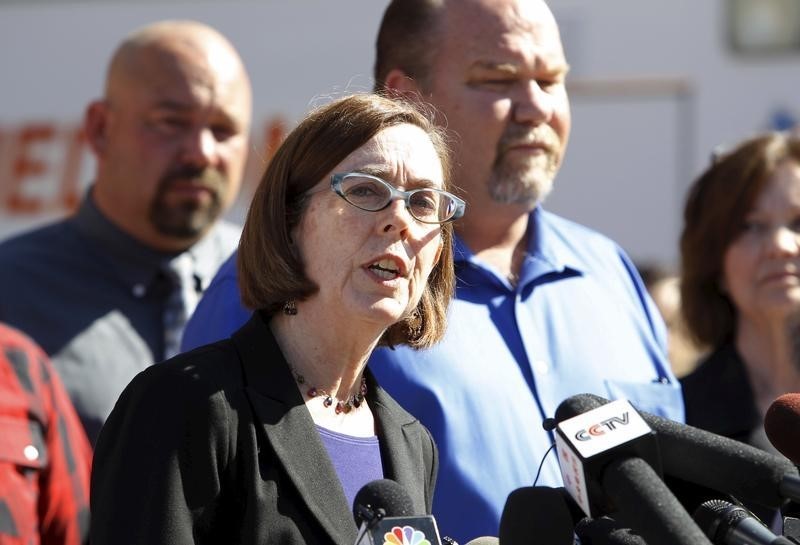By Shelby Sebens
PORTLAND, Ore. (Reuters) - Oregon Governor Kate Brown has denied a request from her predecessor John Kitzhaber for help paying the fallen Democrat's legal bills amid an ongoing federal criminal corruption investigation, her office said on Friday.
Kitzhaber resigned in February amid allegations that his fiancée, Cylvia Hayes, used her role in his office for personal gain. He has denied wrongdoing and no charges have been brought in the federal investigation.
The allegations snowballed in the days before he stepped down as media reported that Hayes received $118,000 in previously undisclosed consulting fees in 2011 and 2012 from the Washington-based Clean Economy Development Center while also advising the governor on energy policy.
Kitzhaber, through an attorney, requested legal defense money shortly after his resignation, a spokeswoman for Brown said, adding that the attorney did not request a specific sum.
Brown's office denied Kitzhaber's request in late March, the spokeswoman, Kristen Grainger, said.
Under an Oregon law that took effect when Kitzhaber was in office, state employees can request taxpayer funded legal fee assistance if the case is connected to their official duties, Grainger said.
Nine current and former employees of Kitzhaber's office have received taxpayer funded legal fee assistance stemming from the Kitzhaber investigation, Grainger said.
Under Oregon law, the state agency where the employee works must make the request for taxpayer funded legal fee assistance to the Department of Administrative Services, Grainger said.
The request must meet certain criteria, however, such as that the employee was acting in good faith and working within the scope of his duties, Grainger said.
In reviewing the request, Brown's legal counsel found there was not enough information to determine whether Kitzhaber's case met the requirements of the law.
"Governor Brown's office would need to make representation about what he was thinking, what he had done, all of those things that those questions asked and that information was not forthcoming," Grainger said. "This is an individual who had resigned his office."
An attorney representing Kitzhaber did not immediately respond to a request for comment.
Last month, Brown released 5,000 emails from a private account used for state business by Kitzhaber.

One of those emails contained a memo in which Kitzhaber told staff that Hayes ought to play the same role as a spokesperson and advocate for his office as she does as a fellow at the Clean Economy Development Center.